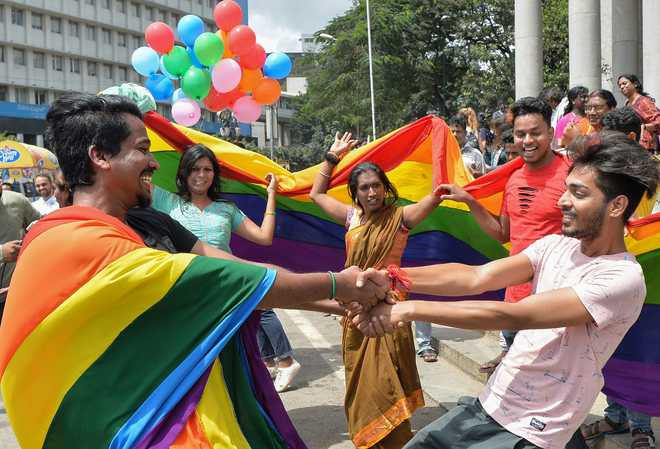
THE Supreme Court on Thursday lay to rest Section 377 that criminalised and discriminated specific sexual acts in private between consenting couples. No political party can take credit for the battle fought twice in the Supreme Court to remove the colonial vestige. Rather the engine behind the initiative were individuals not earlier involved in activism, NGOs and, what are today dismissively called, ‘human rights’ lawyers. The striking down of Section 377 should bring an end to the stigma, silence and violence that triggered a sense of shame and loss of self-esteem among those whose natural inclinations made them opt for a different sexual orientation. As a result, several of the petitioners confessed to having had to grapple with depression, self-harm and other mental health issues, including suicidal attempts.
It was ironical that while the British have legalised gay marriage, the political class in its former colonies, including India, Singapore and Malaysia, besides 60 other nations, pandered to majoritarian or religious sentiments in preserving Section 377 in their statute books. Sexual orientation and gender expression form an integral part of an individual’s identity the world over and the five-judge Constitutional Bench rightly observed that the 150-year saga of criminalising gay sex was ‘irrational, indefensible and manifestly arbitrary’. Over years, the rationale of this illogical law seeped into popular consciousness, giving rise to extremely prejudicial societal behaviour towards people with a different sexual orientation.
At a wider level, the judgment ought to be framed in the context of a blow against a particularly virulent strain of religious conservatism that tends to view the ‘other’ in a judgmental manner instead of being tolerant, inclusive and empathetic to those with a different orientation. Justice Indu Malhotra felt that history owed an apology to the LGBTQ community for denying them rights and compelling them to live a life of fear. That may be a bridge too far. For now the liberation from an atmosphere of blackmail and harassment by authorities should be adequate compensation as activists gear up to cross the next Rubicon — legalising same-sex marriages.



























